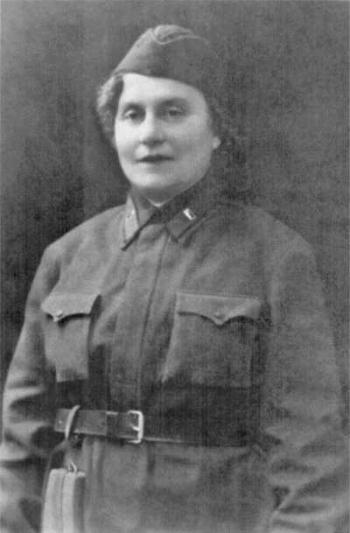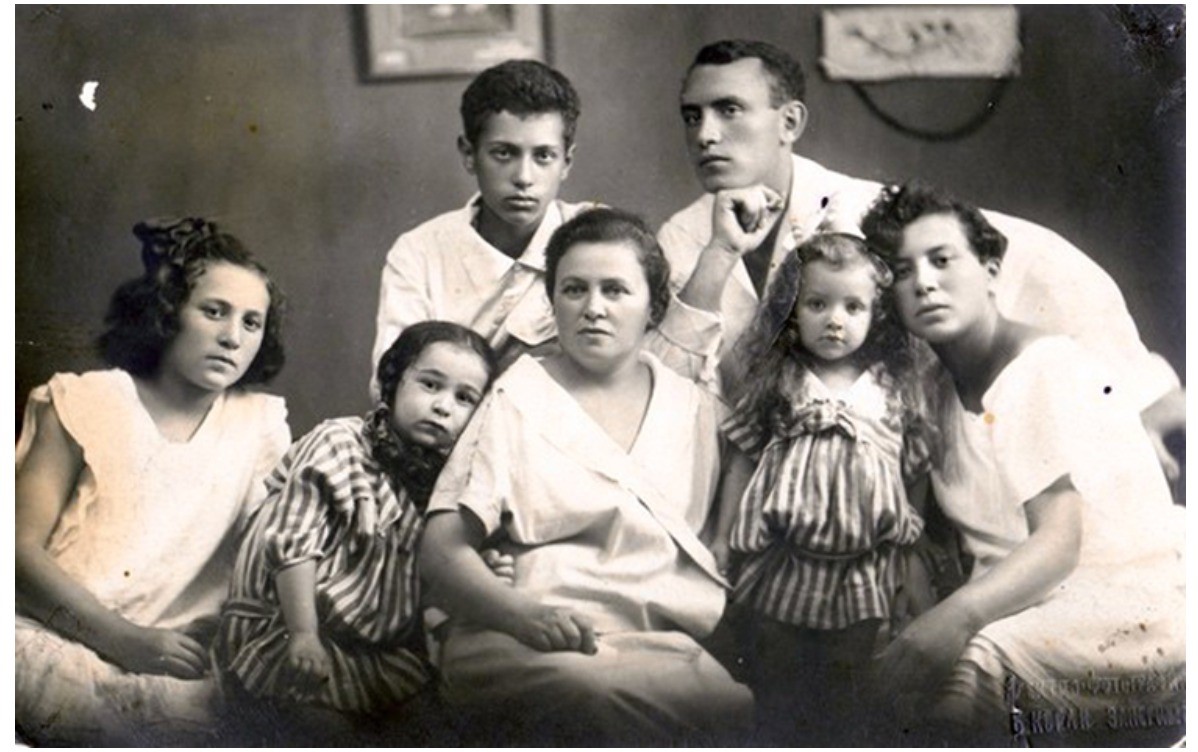Tsetsilia Vaskevich was born in 1895 in the district town of Khorol (in present-day Poltava Oblast, Ukraine). The Vaskevich family was large and wealthy. All the children received an education. Tsetsilia became a physician.
Tsetsilia Vaskevich was called up for active duty in the first days after the German invasion of the USSR in late June 1941. In October 1941, she took part in the battles for Moscow and served on the front lines of the bloody Vyazma Operation. She served as a 3rd-rank combat medic, treating the wounded soldiers.
Eventually, the town of Vyazma was overrun by German troops. Stranded in occupied territory, Tsetsilia Vaskevich continued working at a hospital for military evacuees. Despite her markedly Jewish features, she managed to procure fake ID papers, which gave her name as Tatyana Tarakanova, and she rented a room in an apartment where German officers were quartered. Thanks to her knowledge of German, she was able to eavesdrop on the officers' conversations, passing the information on to local partisans. Meanwhile, the military hospital at which she worked was turned into a civilian one. By issuing fake medical certificates, she managed to save some people from being deported to forced labor camps. Together with several other members of a clandestine resistance cell, Vaskevich orchestrated the escape of a group of POWs from the Dulag-184 transit camp, and she later helped to find lodgings for the escapees in the area, supplying them with fake ID papers, or else smuggled them to the partisans. The local Gestapo eventually tracked down and eliminated this cell. Tsetsilia Vaskevich was executed in December 1942.
The fate of the other members of the Vaskevich family is illustrative of the fortunes of a segment of the Soviet Jewish intelligentsia in the Stalinist period. Tsetsilia's older brother Samuil was shot in 1938, at the height of the Great Purge. Another brother of hers, Mikhail, who was a military technician, went missing in action in October 1941. Her sister Lyusya Vaskevich, who was a captain of the Medical Service and served as the head of a ward at a military hospital, was awarded the Order of the Red Star. In the late 1940s, during the campaign against the "rootless cosmopolitans", she was repressed, but rehabilitated later. A similar fate befell another sister, Berta, who was arrested in those years, and eventually rehabilitated.








